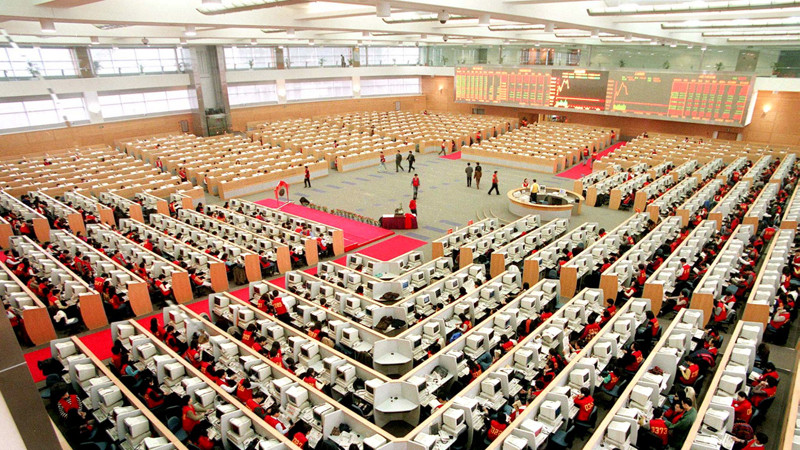
The key indicators in Asia point to an increase of 4.5%. The Japanese Nikkei 225 was the exception, showing a slight decline (by 0.48%). The S&P/ASX 200 in Australia and the KOSPI in Korea both saw gains of 0.34% and 0.81%, respectively. Chinese indicators grew more than other indicators: the Shanghai Composite increased by 2.21% while the Shenzhen Composite increased by 1.89%. The biggest increase was seen in Hong Kong's Hang Seng Index, which increased by 4.43%.
Concerns about protests in China against quarantine measures that were implemented last week in several major Chinese cities caused the Japanese indicator to drop to its lowest point over the past week.
Following recent protests that occurred in several cities, optimistic investor sentiment is linked to expectations of a softening of the Chinese government's stance in the fight against the coronavirus. The "zero tolerance" rule for COVID-19 is anticipated to be dropped.
Investors from various nations are concerned that the protests in China may harm the nation's economic development as well as the restrictive measures themselves, whose introduction is opposed by the populace.
The government's support for real estate developers the day before was another factor in the rise of Chinese indices. To raise money for debt repayment and other purposes, the Securities Market Regulatory Commission announced yesterday that the ban on the sale of securities of these companies on the domestic market had been lifted. These actions are intended to advance this area of the Chinese economy.
In response to this news, the price of Country Garden Holdings, Co. shares increased by 8.2% all at once. China Vanke Securities, which increased by 12.2% in Hong Kong and 10% in Shenzhen; Gemdale, which increased by 5.1% and 10% in Hong Kong and Shanghai; and Greenland Holdings, which increased by 5.3% and 10%, respectively, also noted the increase in value.
Kweichow Moutai's stock quotes increased by 5.4% as a result of its announcement that it would be paying special dividends for the first time since its initial public offering (IPO) in 2001 for 21.91 yuan.
Comparing October to the same month last year, retail sales in Japan increased by 4.3%. The increase in this indicator, however, was less than both the 4.8% mark from September and the experts' predictions of a 5% increase. Sales rose by 1.5% in September, but only by 0.2% compared to the previous month.
Even though experts predicted it would drop to 2.5%, the nation's unemployment rate stayed the same (at 2.6%).
The most significant price declines were seen in the shares of Eisai, which dropped by 6.22%; SoftBank Group, by 1.37%; Keyence, by 1.6%; Advantest, by 1.7%; and Tokyo Electron, by 1.08%.
After Honda Motor announced that the Wuhan, China, plant would be shut down due to the imposition of restrictive measures, the value of Honda Motor securities fell by 1.55%.
At the same time, West Japan Railway's share price increased by 2.12%, Isetan Mitsukoshi Holdings' by 3.32%, and Takashimaya's by 3.66%.
The largest companies that make up the Australian indicator saw their stock prices rise, helping it to grow: BHP Group's quotes rose 2.1%, Rio Tinto's - 3.5%, and Pilbara Minerals' - 1.6%.
 English
English 
 Русский
Русский Bahasa Indonesia
Bahasa Indonesia Bahasa Malay
Bahasa Malay ไทย
ไทย Español
Español Deutsch
Deutsch Български
Български Français
Français Tiếng Việt
Tiếng Việt 中文
中文 বাংলা
বাংলা हिन्दी
हिन्दी Čeština
Čeština Українська
Українська Română
Română

